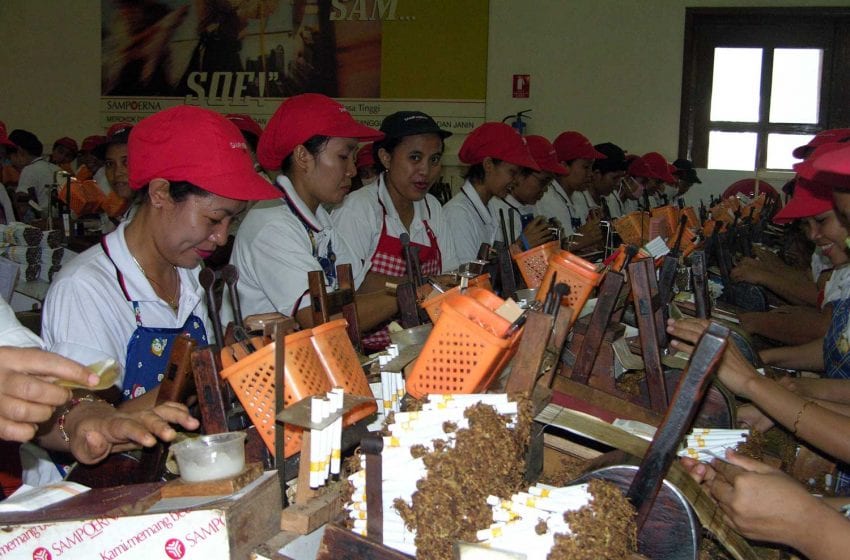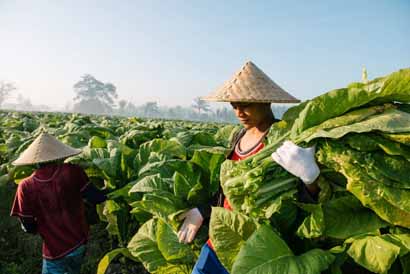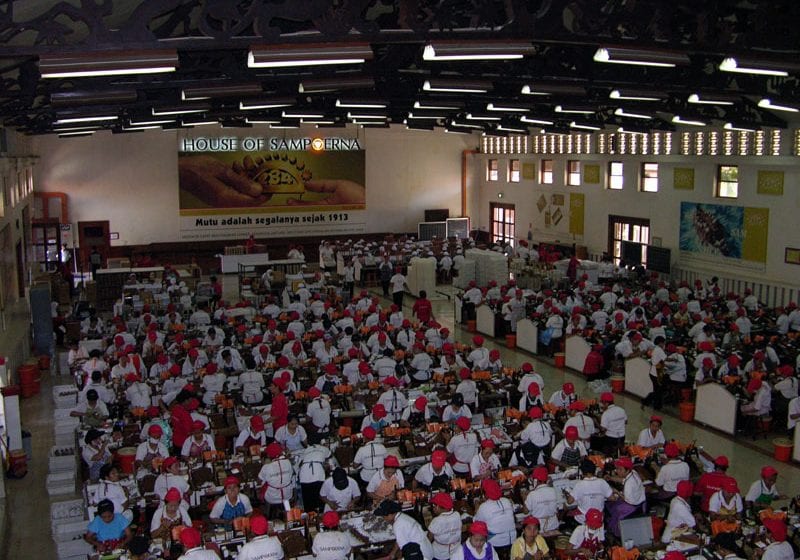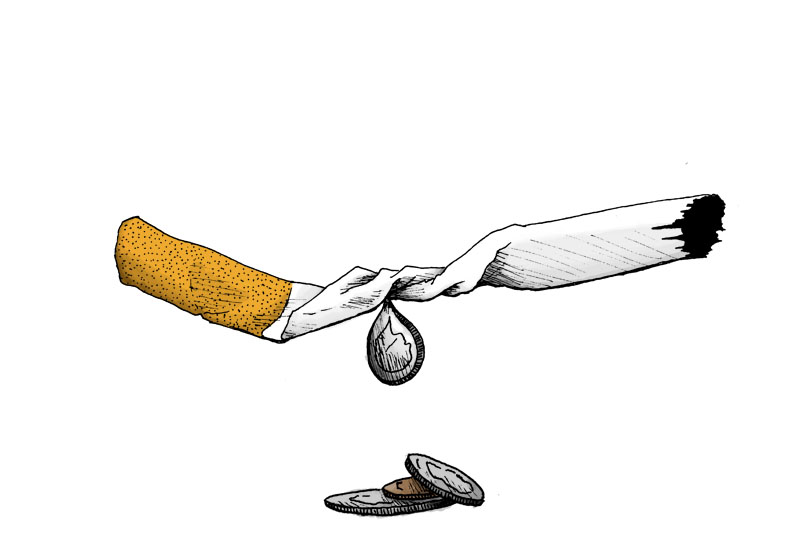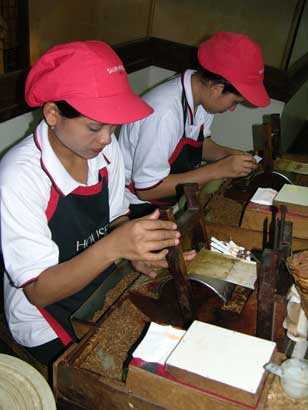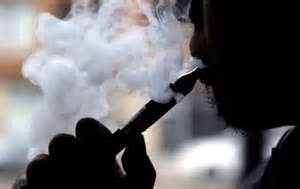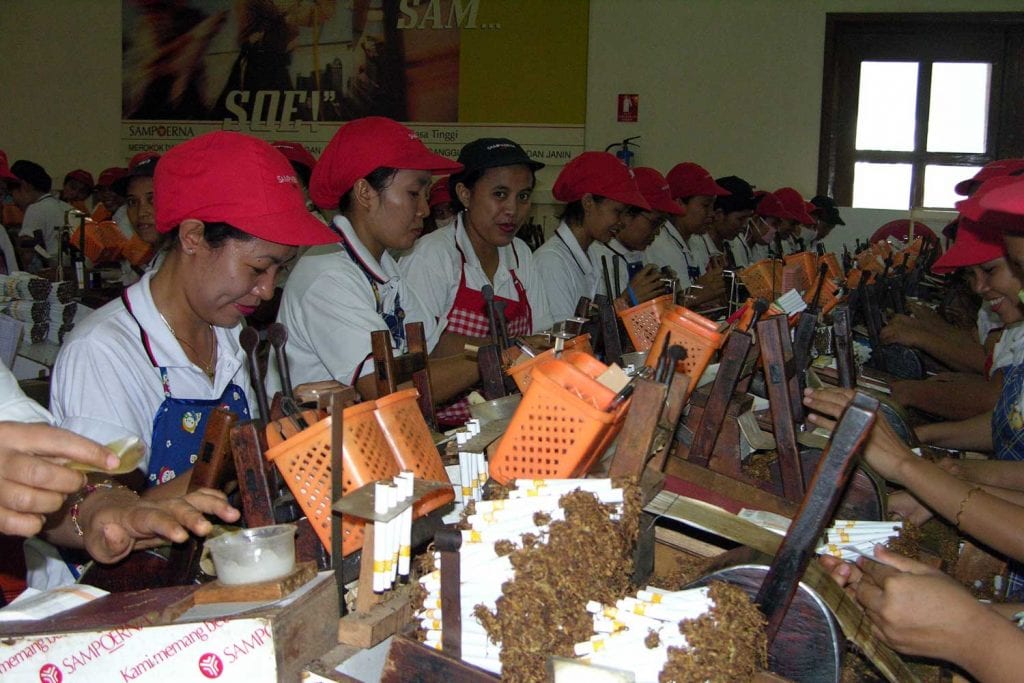
Indonesian cigarette manufacturer Sampoerna temporarily closed a cigarette factory in East Java after two workers died of the coronavirus, reports The Straits Times, citing local authorities in Jakarta.
Two of the company’s laborers who worked in Surabaya, Indonesia’s second largest city, died on April 14 and tested positive for Covid-19. Nine fellow workers who showed symptoms later were sent to a hospital for treatment, local media reported.
As many as 323 workers who did not show symptoms underwent rapid tests and 63 of them had positive results, state news agency Antara reported.
With some 26,000 workers, Sampoerna is the biggest cigarette producer in Indonesia, where about 60 percent of the male population are smokers. The company is 92.5 percent owned by Philip Morris International.
The factory’s closure is unlikely to affect the company’s total production as Sampoerna has cigarette factories in several other locations.
Indonesia has 10,100 Covid-19 confirmed cases, with 792 deaths as of April 30—the highest number of coronavirus fatalities in South-east Asia.

